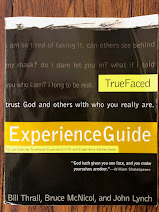The story...
They say swimming is good for you. For me, it's the best alternative. I wonder what swimming is like for young athletes; all those hours with their head down thinking about what? In 2022, I had a second go at a swimming life style - a good habit. The whole process takes about two hours with 35 minutes actually swimming freestyle - the crawl. I pack my bag, drive, find a space, walk in, talk to a friend, change, do a lifting/aerobic routine, shower, jump in, start my Apple watch, swim, soak, shower, change, talk again, and drive somewhere. Why would a sane person do such a thing? For me, it's part of a better life. I expect that people who come closest to knowing me would agree that this is a good investment of these chunks of life. I plan on sticking with it until...
How does a person think while their eyes are seeing those tile squares, on the bottom of the pool, flow by? I used to think about how much longer I had to do this - my watch takes care of that now. Each time's different yet the same in some ways. You can't hear much, can't see much, can't smell much, can't taste much but you do feel a whole lot as you almost weightlessly float along. I come out of the pool feeling rested and more peaceful. And, a bit closer to my inner-man - maybe even spirit-to-Spirit connection.
The one I love is running is within this photo.
The only church in town might feel like the community pool. I hope you enjoy pondering this one and maybe even plan to visit your community pool. Might a change to your routine help you "be."
Just for today...
"When I was angry and wanted to argue, I silently fumed. When I was hurt and wanted comfort, I pouted. When I wanted attention, I talked non-stop. I couldn't understand why I rarely got the responses I expected! I no longer expect anyone to read my mind." Courage to Change (p. 66)
"Feet dangling in; Ready to jump - Waste no time; Enter the chill."
"First lap's fast; Body knows how - Mind's on me, Heart's exposed."
"Few distractions; Spirit and soul - We're together; Smooth and aligned."
"Time is up; Return to life - A better man; Me and He." Am I a Poet?





.jpg)

